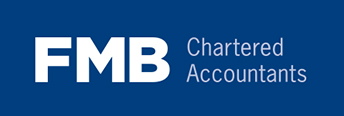As the OECD’s deadline for finalising major reforms to the global tax system draws near, the Irish government recently opened a public consultation on the deal as it considers its future:
- Ireland is notably one of the holdouts on the agreement, which has seen some 131 countries sign up to the deal that includes setting a 15% minimum corporation tax rate globally. The OECD aims to finalize the agreement in October.
- Ireland’s vaunted 12.5% rate has been a key tool in its industrial policy, attracting several major pharmaceutical and tech giants to its shores, from Pfizer to Facebook.
- Any changes to that rate could have serious implications for Ireland as a destination for foreign investment and for receipts at the exchequer.
- The Dublin government estimates that changes to its tax rate could lead to 2 billion to 3 billion euros in lost tax revenue every year.
- Finance Minister Paschal Donohoe has voiced support for reforms of the international system generally, but stops short of agreeing to a minimum rate.
“Ireland is broadly supportive of the agreement but signaled a reservation in the respect to a commitment to a rate of ‘at least 15%’ for a global minimum effective tax rate,” a spokesperson for the Department of Finance told CNBC in a statement.
James Stewart, adjunct associate professor in finance at Trinity College Dublin, said that the consultation is likely a delaying tactic to see how things shake out stateside before making any decision. U.S. President Joe Biden, who has championed the reforms, will need to get the measures passed through Congress.
“Even if you get a whole array of opinions, what will the department do with those? They’re not binding and they’ve had other consultations before,” Stewart said on Ireland’s consultation.
Tax scrutiny
Ireland has long attracted scrutiny of its tax regime, most infamously in its affairs with Apple.
There have been gradual changes over the years to the global tax landscape that have affected Ireland’s tax regime. A loophole known as the “double Irish,” favored by some multinationals to cut their tax bills, was closed last year.
On the flipside, Ireland has maintained a scheme called the Knowledge Development Box, a low rate of tax related to patents and intellectual property.
KPMG’s Manal Corwin, a former Treasury Department official, said Ireland will face some pressure to sign up to the OECD deal and that maintaining its lower 12.5% rate may be inopportune in the long term.
Corwin said that the OECD proposal is not a direct request to set a rate of tax but it would make maintaining a lower rate less advantageous for companies when it comes to choosing bases for their operations.
Under the current proposals, if Ireland maintained its 12.5% rate, a company would pay that tax at that rate in Ireland but it would also be taxed on the excess amount by the company’s home country, such as the U.S. in many cases.
This could leave tax revenue on the table that Ireland could otherwise pick up if it signs up to the deal, she said.
“The income [of companies] will be subject to the higher tax so whatever they are achieving by maintaining a low rate to attract investment will be neutralized by the taxation of other countries. If the rate isn’t necessarily changing the attraction for investment, why wouldn’t [Ireland] pick up that revenue rather than someone else?”
Corwin added that Donohoe’s assertions that the minimum rate of 15% could be increased in years to come has little basis.
Plant-based food trend ‘is here to stay,’ says Kerry Group CEO
“They haven’t put in the agreement any mechanism for that to happen so I suspect that’s a fear that he’s expressing. You would still need to get global agreement because this is all dependent on a global consensus that this is the right rate,” she said.
“I think the reality for Ireland is if there’s enough buy-in from surrounding jurisdictions that are economically relevant to Ireland, then it will be difficult to not shift.”
Future policy
Trinity’s Stewart said change is likely coming in one form or another for Ireland, whether that’s a change in tax rate or how Ireland structures its tax regime for multinationals, such as giving tax breaks.
“It might be more difficult for Ireland to have favorable tax regimes introduced. I think changing the tax rate will be the first step but then there will be much more tightening up on the tax regime you can have in Ireland to facilitate multinational enterprises in one way or another,” he said.
Attracting foreign direct investment has been a major part of the country’s financial strategy for decades and in generating jobs.
“What will be the effect on location decision, that’s a difficult one to know,” Stewart said, referring to where multinationals will base future investments.
The likes of Google and Facebook are unlikely to unwind or uproot their substantial investments in staff, resources and property in Dublin but whether Ireland will continue to attract foreign direct investment at its current pace is the great unknown.
Ireland continues to trumpet the country’s other aspects for why it is an ideal location for investment. It is English-speaking, politically stable and provides access to the EU market.







